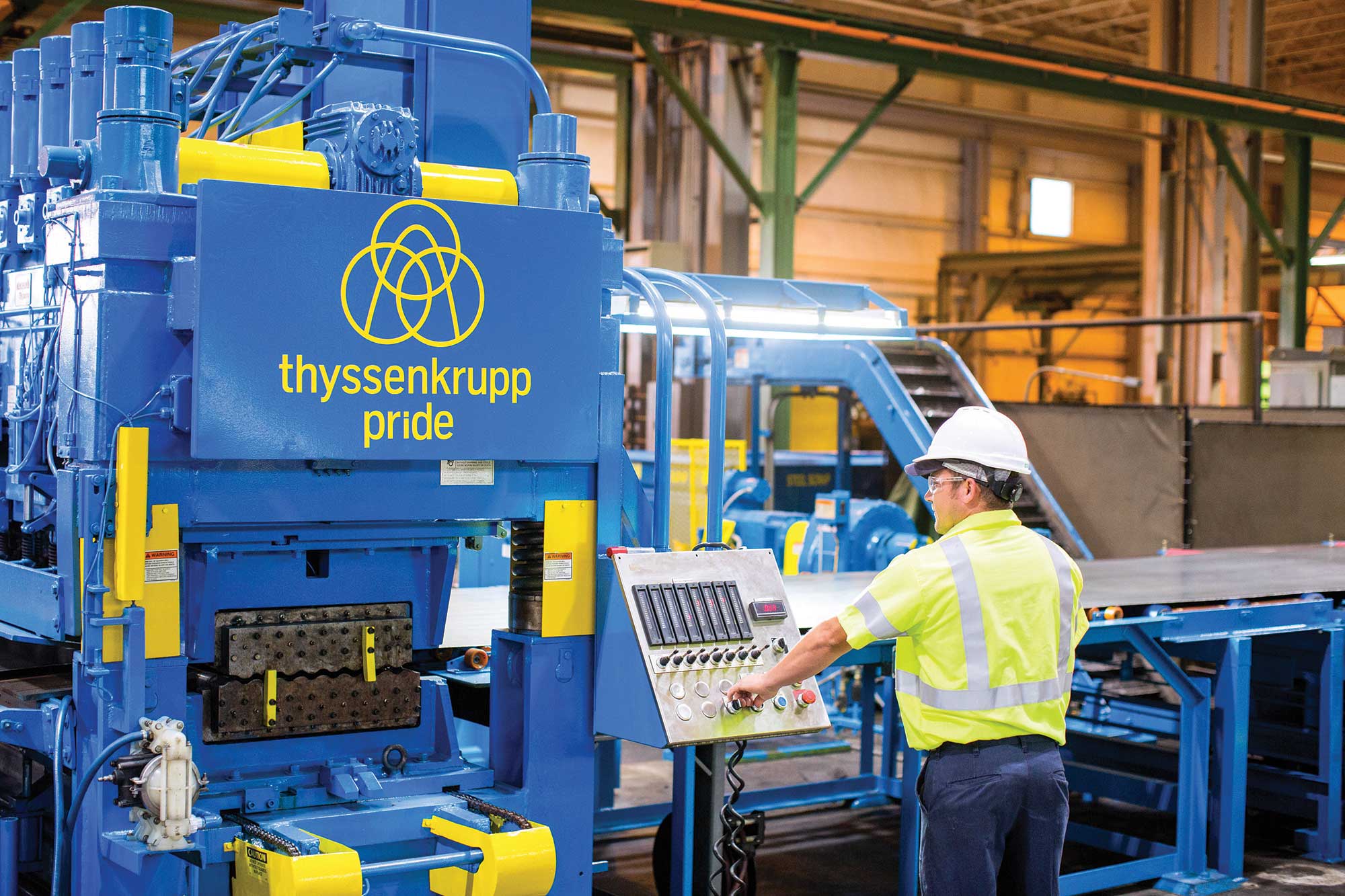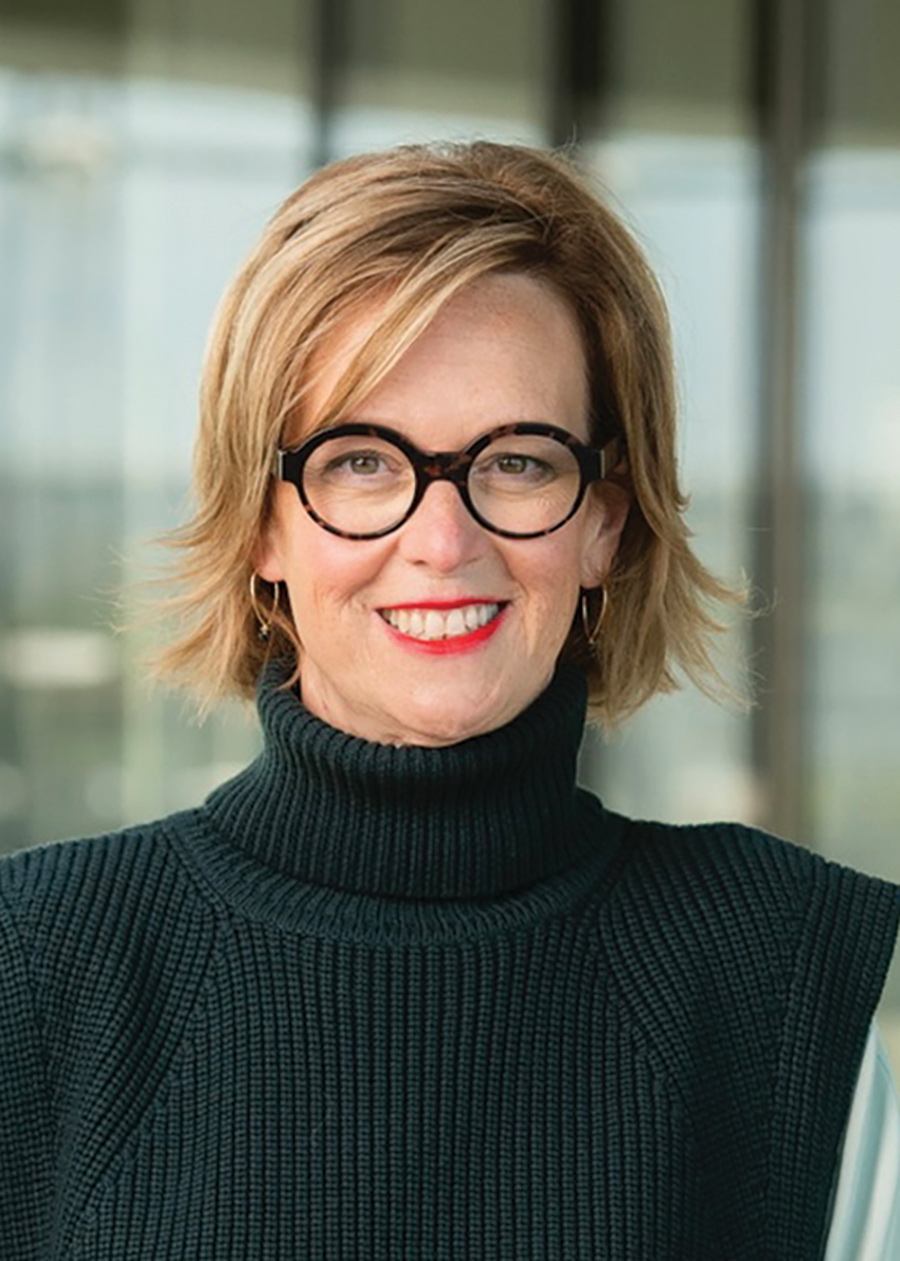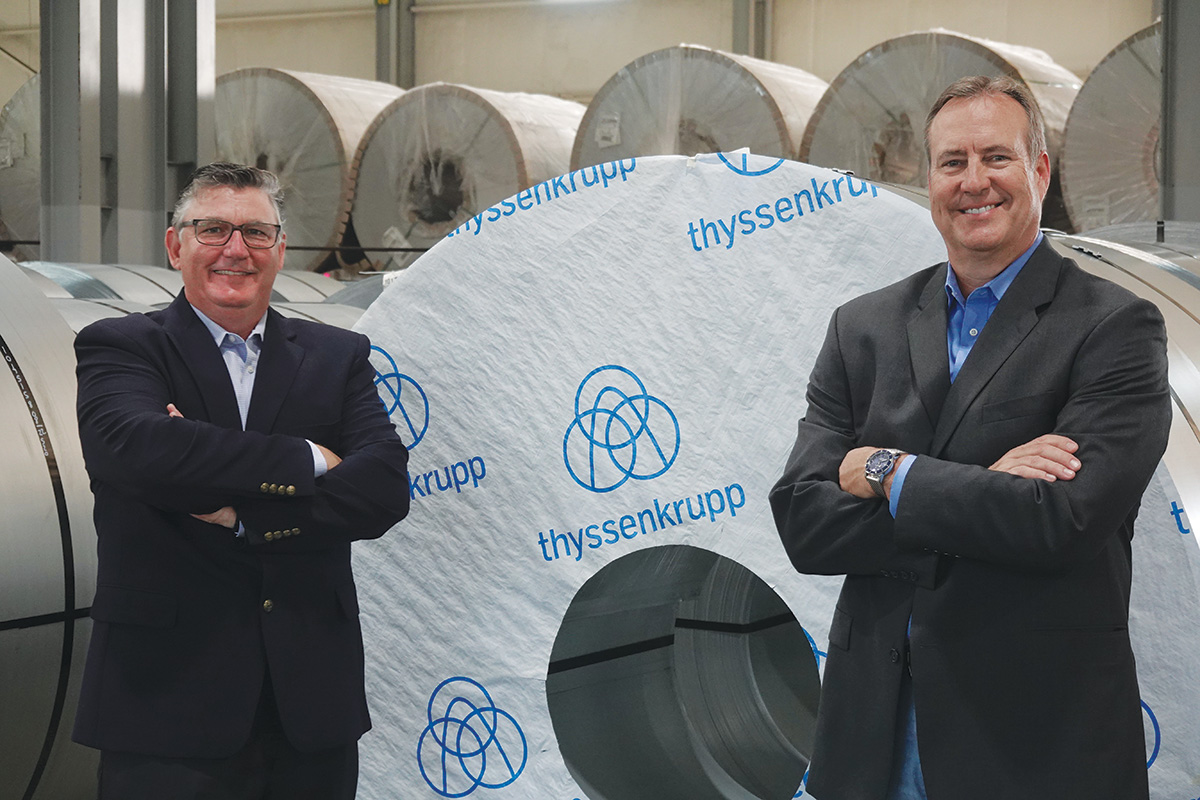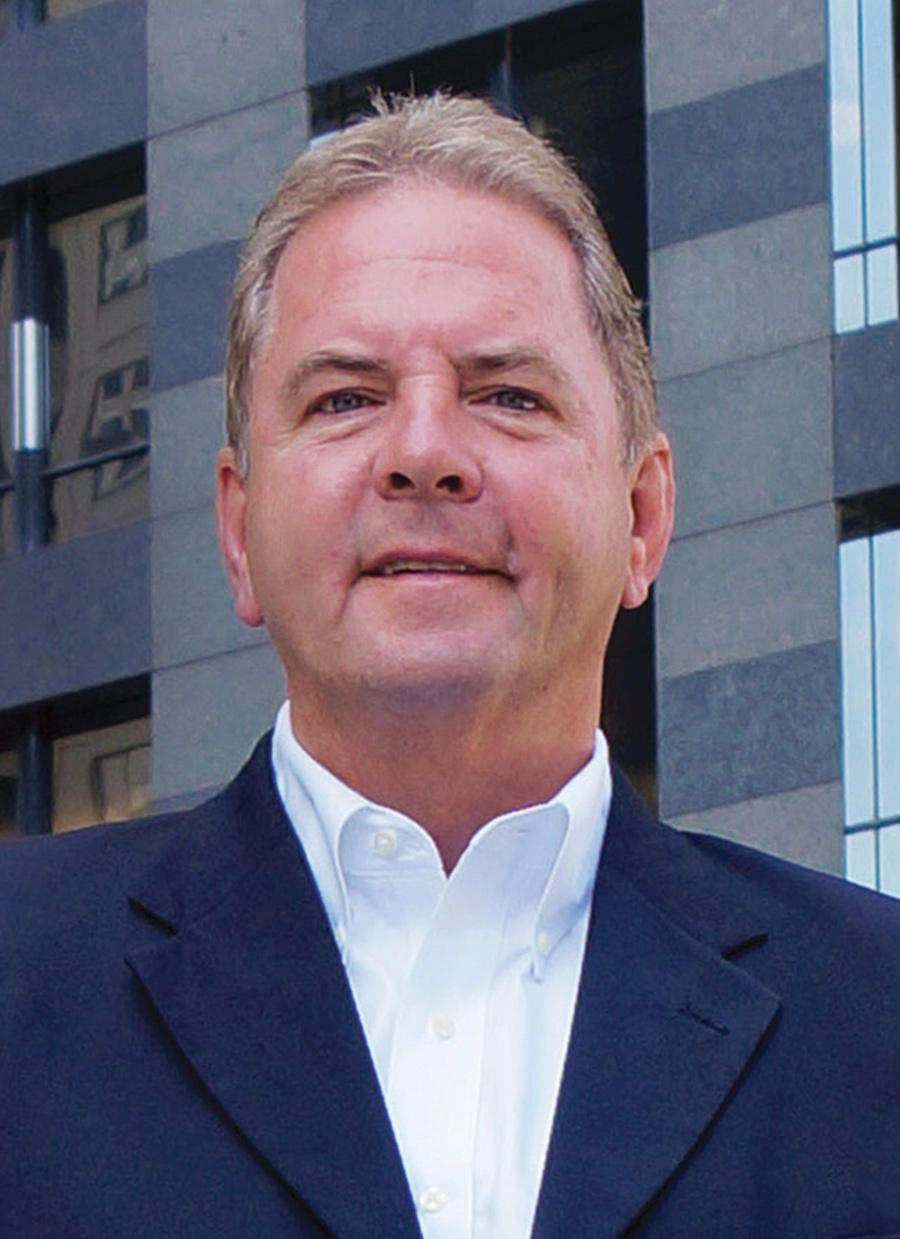
inton, Texas—located 167 miles northeast of Matamoros, Mexico, and 190 miles southwest of the Port of Houston—is at a crossroads of commerce. thyssenkrupp’s Coil Processing Group (CPG), comprised of Ken-Mac Metals and thyssenkrupp Steel Services, is breaking ground on its newest facility to help one of its key suppliers make processed steel more accessible in a market that was underserved until now.
Not long after Steel Dynamics Inc. (SDI) announced it would build a 3-million-ton melt shop and rolling mill in Sinton, it reached out to major steel processing partners to gauge their interest in co-locating assets there.
“Almost 3 years ago initial discussions occurred about how we could be an important part of the Sinton campus portfolio of suppliers.” says Steve McGee, chief operating officer for thyssenkrupp Steel Services. “We are a key automotive service center partner to SDI and we’ve built a solid reputation over the last decade or more managing complex automotive supply chains and clients.”
Although the COVID-19 pandemic loomed large in discussions, “we knew the timing was suspect, but we also understood this was a great opportunity since mill projects like this don’t come along very often,” McGee says.
“We’ve had a very successful track record of growth at CPG by developing the business, then investing in the brick and mortar. This opportunity is somewhat different but, ultimately, will allow us to better support several current partnerships in the area and position ourselves to grow our brand with new customers in potentially new market segments.”
Plans call for two large pieces of capital equipment, a state-of-the-art slitter and multi-blanking line, both of which will be sourced domestically.
Orders have been placed for items that require the longest lead times, such as steel processing lines and cranes.
“We are now in an early construction phase, and there is quite a bit to be done in the next 12 to 14 months,” McGee says.
As a result, “We are evaluating solar power and how we would be able to manage adequate loads on our equipment and other aspects of powering the plant. We haven’t finalized those decisions yet as we’re assessing our options and our needs initially and into the future,” says McGee.
Based on the project status in early October, he estimates the plant will be ready for startup late in 2022. “We will continue to aggressively manage the timeline, to include deploying commercial assets.”
The company performed “exhaustive reviews about the kind of equipment we need to process SDI steel—lighter gauges, more complex grades and coated materials,” he says. “We believe the Southwest corridor is growing exponentially with new OEMs and new industries moving into the region. And with the new NAFTA agreement, there will be more opportunities for OEMs investing in Texas and the entire region,” Urso says.

 The focus will be on the sustainable expansion of our supply chain service business, one of the two pillars of our MaaS strategy.
The focus will be on the sustainable expansion of our supply chain service business, one of the two pillars of our MaaS strategy. 
chief transformation officer (CTO)
Member of the Executive Board
thyssenkrupp Materials Services
Timothy Yost, president and CEO of the Coil Processing Group, says, “we had not previously developed assets in the Southwest so this is the next step. The new location is expected to primarily service automotive but there is a range of other manufacturing sectors that will benefit from the supply chain management capabilities that our group offers.
“We engineer Materials as a Service (MaaS) supply chain solutions,” Yost continues. “We assist manufacturers with their supply chain. It means aligning with the proper metals supplier (such as a mill) and partnering with them and our collective customers, assuming all management duties—getting the right material, right dimensions, for the right applications. That means meeting with our customers engineers, their purchasing and marketing teams, become involved in hard and soft tooling, aligned with solution-minded activities, all incorporating best practices. Then we will store the inventory, process, determine proper demand and deliver all while our customers focus on their expertise: the manufacturing process.”
Yost cites a consumer goods manufacturing customer as one example. “There are over 200 parts to their product. Each part is individually stamped. We source the mill orders to the right specifications, interpret demand planning, bring all the metal together and store them for JIT delivery to the stamping operation.

Ilse Henne, member of the executive board of thyssenkrupp Materials Services and its chief transformation officer, notes that the company is significantly expanding its North American business, “one of our absolute core regions. We are already No. 3 in North America and we intend to grow further.
“The focus will be on the sustainable expansion of our fast-growing and excellent supply chain service business, one of the two pillars of our MaaS strategy. As supply chain experts,” Henne says, “we know how to manage supply chains flexibly and efficiently. And efficiency is the key to greener supply chains. Avoiding waste and resource loss in the supply chain not only improves the success of our customers, but also contributes to a more sustainable world. Because the earth has no price.”

 We want to become a sustainable, diversified distributor and capture the markets that are green oriented.
We want to become a sustainable, diversified distributor and capture the markets that are green oriented. 
President and CEO
thyssenkrupp Coil Processing Group
“Besides EVs, so many industries are trying to reduce their carbon footprint in making their products and are using less energy. We must align ourselves with those efforts,” he says. “We want to be involved in a sustainable future and so we are pursuing those applications. It is the right thing to do for the environment. We are thinking of our children, our grandchildren and our legacy.”